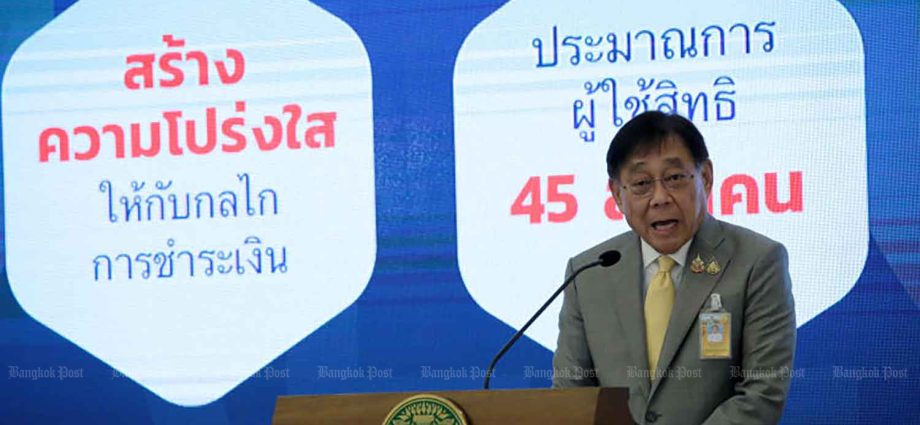
The Pheu Thai Party is confident that a supplementary bill aimed at funding its flagship digital wallet handout scheme will pass the House’s second and third readings on Wednesday.
Wisut Chainaroon, a Pheu Thai MP-list and the chief government whip, said on Sunday the bill will pass as the handout scheme has kindles new hope among the public.
The final deliberation of the bill is expected to wrap up in four hours, as only 20 MPs have listed questions about the scheme’s budget, he says.
The bill, which seeks to increase the budget for the current fiscal year by 122 billion baht, passed its first reading in the House of Representatives on July 17.
Thirachai Saenkaew, a Pheu Thai MP for Udon Thani and spokesman for a committee studying the supplementary bill, said the panel reviewed the bill three times and is ready to answer all questions presented in parliament.
“We invited various agencies to provide information. We have confirmed the digital wallet project covers all groups of people, including those who do not have smartphones. The application will be ready for the project when it is launched,” he said.
Regarding opposition parties’ concerns about whether the 2024 budget expenditure can be carried on to the year 2025, he said the Budget Bureau confirmed the 2024 budget can be used until next year.
He is confident the second and third readings of the bill will go as smoothly as the first.
Meanwhile, a source said that although the scrutiny committee agreed with the bill in principle, it had raised some points that the government must consider.
First, the government should specify in the project’s terms of reference that it will collect users’ spending data so it can monitor the economic effect of the stimulus scheme.
The panel also suggested the government differentiate between investment expenditures and regular expenditures and recommended the Budget Bureau define “investment expenditure” with additional details to ensure clarity, the source said.
The committee also suggested a clear list of items or services that people are prohibited from buying using the handout money, the source said.
The Trade Competition Commission should be involved in providing advice and evaluating the results of the project, especially in terms of its impact on the retail and wholesale markets, the source said.
The government must also punish those who violate the rules of the project and establish a unit or a channel through which the public can file complaints about wrongdoers or ask for help, the source said.
The Personal Data Protection Committee and the Office of the Personal Data Protection Committee should also participate in the project.

